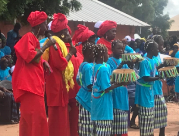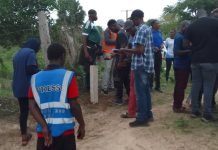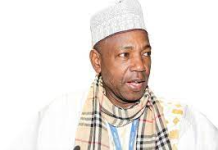By Lamin Fatty
Sixty communities in the Central River Region (CRR) have committed to abandon Female Genital Mutilation/ Cutting and Child Marriage in their communities.
They revealed this in a resolution against Female Genital Mutilation/ Cutting and Child Marriage while citing the practices as not religiously obligatory, but rather a human rights violation.
The communities resolved that the practice should be abandoned completely as dictated by law.
The representatives of 60 Communities in Sami, Niani, Upper and Lower Fulladou Districts of the Central River Region of the Republic of the Gambia on Sunday, 17 September 2023 at Pachonki converged and solemnly pledged to abandon the practices of Female Genital Mutilation/Cutting (FGM/C) and Child Marriage in their communities.
These communities are partnering with Tostan- a non-governmental organization that shares a three-year community employment programme with communities that want to create a vision for the well-being of all and promote dignity for all.
According to their resolution read by one Binta Gano, the historic decision aims to reinforce the promotion of human rights and health in The Gambia.
“The communities that are here with us today, reinforced with sensitization and Social Mobilization activities by the Community Management Committees and Social Mobilization Agents,” Gano said.
The programme encourages communities to define and fulfill their own vision on key areas such as education, health, governance, economic growth and environment.
Mama Jabbi, one of the Circumcisers who spoke on behalf of her fellow Circumcisers, said female genital cutting is a traditional and cultural practice and has now become a business for some, which is full of health implications.
“Now after going through the Tostan intervention programme, we were able to gain knowledge on the harmful effects of the FGM/C which leads to so many health implications,” she said.
According to Mama Jabbi, through deep conversation and consultation with religious leaders, they decided that the traditional practice of FGM/C and child marriage no longer fit with their vision of well-being.
Tostan National Coordinator for the Gambia Edrisa Keita said that their role is to facilitate the programme intervention in communities.
“I am overwhelmed to witness other communities that voluntarily declared abandoning these harmful traditional practices,” Mr Keita said.
Mr Sainey Mbaye, the Deputy Governor of Central River Region, who graced the declaration ceremony on behalf of the Governor, said the issue of FGM/C is so controversial nowadays as it is a deep-rooted traditional and cultural practice but there is a law against it.
“Even though there is a law against it, FGM/C became one of the controversial issues amid its practice and one needs to understand that there was a law against it and that law still exists,” said the Deputy Governor.
Other Speakers include the Deputy Director for Gender and Children Welfare, Neneh Touray, the Regional Health Director for CRR.
The declaration ceremony was marked by a cultural performance by circumcisers, drama displayed on forced and child marriage, testimonies from social mobilization groups, declaration statement read in English, Mandinka, and the Fula dialect, and the event was graced by regional authorities from the Northern and Southern part of the Central River Region (CRR), including District Chiefs, Ward Councilors and Chairpersons, Women Councilors, Religious and Traditional Leaders respectively.





















